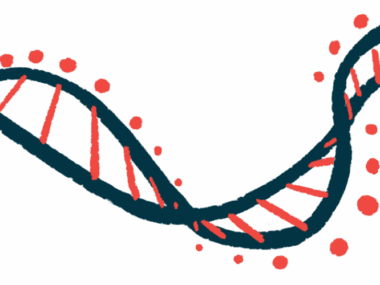FDA lifts clinical hold on Phase 1 study of PepGen’s therapy for DM1
FREEDOM-DM1 to test safety, efficacy of PGN-EDODM1 in patients
Written by |

The U.S. Food and Drug Administration (FDA) has lifted its clinical hold on PGN-EDODM1, a medicine being developed by PepGen for myotonic dystrophy type 1, or DM1 — a subtype of the most common form of muscular dystrophy.
With the hold lifted, PepGen is ready to run its Phase 1 study, called FREEDOM-DM1, both in the U.S. and in Canada, where it already was cleared to start. In line with discussions with the FDA, the trial’s design will include the planned doses of 5, 10, and 20 mg/kg.
In early September, the FDA had granted orphan drug status to PGN-EDODM1 for the treatment of DM1. That designation is given to medicines with the potential to treat rare diseases, defined in the U.S. as those affecting fewer than 200,000 people. Orphan drug status provides tax credits to the developer, and may result in seven years of market exclusivity if the therapy is approved.
“We have worked closely with the FDA to resolve their questions expeditiously and are pleased that the clinical hold on our DM1 program in the United States has been lifted,” James McArthur, PhD, PepGen’s president and CEO, said in a company press release.
With safety and efficacy data for the lowest dose level expected in 2024, “we are eager to open study sites in the U.S. to accelerate the development of PGN-EDODM1 for individuals worldwide living with DM1,” McArthur added.
FREEDOM-DM1 trial already cleared to start in Canada
DM1 is a type of muscular dystrophy that causes muscles in the body to become weaker and to waste away over time. It typically leads to myotonia, where muscles become stiff and are unable to relax after they contract.
The disease occurs when a gene called DMPK carries a short segment of three DNA building blocks that is repeated multiple times. The repeats transcribe into a specific code known as CUG and loop into the shape of hairpins.
These hairpin loops, in turn, trap a protein called MBNL1. When this happens, it leads to errors in splicing — the process by which parts of a gene are cut and joined together. This results in abnormal production of DMPK, a protein involved in muscle contraction and relaxation.
PGN-EDODM1 contains a small molecule, called an antisense oligonucleotide, that binds to the CUG repeats and prevents them from trapping MBNL1. This is expected to restore the production of DMPK and allow muscles to function normally again.
The FREEDOM-DM1 study will test the safety and efficacy of PGN-EDODM1 in about 24 adults with a diagnosis of DM1. Patients will be randomly assigned to either a placebo or a single dose of PGN-EDODM1.
The approved dose escalation from the initial 5 mg/kg will be to 10 mg/kg and then to 20 mg/kg. The decision to escalate to the next dose will be determined based on safety data from the prior dose groups.
Our … safety preclinical package has enabled us to launch this study in both the U.S. and internationally at doses that we believe could provide a clinically meaningful benefit to patients.
Earlier preclinical work has laid the groundwork for human testing by showing that PGN-EDODM1 was well tolerated by rodents and non-human primates when given at clinically relevant doses. Moreover, it didn’t degrade, or break down, the temporary molecule (called messenger RNA) that serves as a template for DMPK protein production.
In a mouse model of DM1, a single dose of PGN-EDODM1 at 30 mg/kg resulted in 68% correction of splicing errors. Four doses of PGN-EDODM1 resulted in a 99% correction, an increase of 1.5 times versus a single dose.
While a single dose of PGN-EDODM1 resulted in a 76% reversal of myotonia compared with untreated mice, it was nearly completely reversed — by 99% — following the four-dose treatment scheme.
“Based on these preclinical results, we anticipate proof-of-concept data in patients in 2024, including transcript splicing and clinical outcome measures, at the 5 mg/kg PGN-EDODM1 dose level in DM1 patients,” McArthur said.
“Our … safety preclinical package has enabled us to launch this study in both the U.S. and internationally at doses that we believe could provide a clinically meaningful benefit to patients,” McArthur added.
By mid-2024, PepGen also anticipates trial data from another medicine in the company’s pipeline, PGN-EDO51. That treatment candidate is being given to people with Duchenne muscular dystrophy, at a dose of 5 mg/kg, in an open-label Phase 2 study called CONNECT1-EDO51 (NCT06079736).
The company’s cash position is expected to support operations into 2025, according to PepGen.






